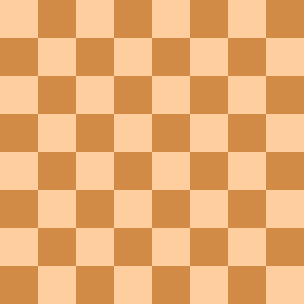Vitaly Chekhover
| Vitaly Chekhover | |
|---|---|
| Full name | Vitaly Alexandrovitch Chekhover |
| Country |
Russia Soviet Union |
| Born |
December 22, 1908 Saint Petersburg, Russia |
| Died |
February 11, 1965 (aged 56) Leningrad, Soviet Union |
| Title | International Master |
Vitaly Alexandrovich Chekhover (also spelled Tschechower or Czechower, pronounced "chekh a VYAIR") (Russian: Вита́лий Алекса́ндрович Чехове́р) (December 22, 1908 – February 11, 1965) was a Soviet chess player and chess composer. He was also a pianist.
Composing career
Schachmaty w SSSR 1947
| a | b | c | d | e | f | g | h | ||
| 8 |  | 8 | |||||||
| 7 | 7 | ||||||||
| 6 | 6 | ||||||||
| 5 | 5 | ||||||||
| 4 | 4 | ||||||||
| 3 | 3 | ||||||||
| 2 | 2 | ||||||||
| 1 | 1 | ||||||||
| a | b | c | d | e | f | g | h | ||
The study is often published.
In the beginning of his career as an endgame study composer, Chekhover often revised traditional studies of other authors. He strove to bring them into a more sparse and economical form, often with fewer pieces – hence focusing on the actual problem itself, rather than the position on the board. Later he found his own style and composed a number of original, independent chess studies and problems. Starting 1936, Chekhover published more than 160 endgame studies.[1] He is considered a prominent specialist on knight endgames, and has written several books on the subject; either alone, or with coauthors such as Russian grandmaster Yuri Averbakh.[2]
Between 1947 and 1965 he participated in the Soviet Union championship for chess composition. Chekhover twice received the title Master of Sports of the USSR. In 1956 he was awarded the title International Judge of Chess Compositions[3] by FIDE, and received the FIDE title International Master of Chess Compositions[4] in 1961.
Playing career
Chekover was also a very successful chess player, being awarded the title of International Master in 1950 when the title was first introduced. Tournament victories include victory in the Leningrad City Chess Championship in 1937 (shared) and 1949. He won the Uzbekistani Chess Championship in 1944.
A variation of the Sicilian Defence is named after him: 1. e4 c5 2. Nf3 d6 3. d4 cxd4 4. Qxd4 (see Sicilian Defence, Chekhover Variation).[5]
Bibliography
- Chekhover, Vitaly; Averbakh, Yuri (1977). Comprehensive Chess Endings: Knight Endings. Batsford. ISBN 978-0713405521.
- Chekhover, Vitaly; Averbakh, Yuri; Henkin, V. (1978). Comprehensive Chess Endings: Queen v. Rook/Minor Piece Endings. Batsford. ISBN 978-0713408669.
References
- ↑ Peter Boll. "Biographical data about Endgamestudy composers/authors". ARVES – Dutch-Flemish Association for Endgame Study. Retrieved 2008-04-03.
- ↑ Chekhover, Vitaly; Yuri Averbakh (1977). Knight endings. trans. Mary Lasher. London: Batsford. ISBN 978-0-7134-0552-1. (Included in Comprehensive Chess Endings, vol 1, Averbakh and Chekhover, ISBN 0-08-026900-1.)
- ↑ Hannu Harkola (1999). "International Judges for Chess Compositions". PCCC. Retrieved 2008-04-03.
- ↑ Hannu Harkola (1999). "International Masters of the FIDE for Chess Compositions". PCCC. Retrieved 2008-04-03.
- ↑ "ECO B53: Sicilian, Chekhover variation". 365chess.com. Retrieved 11 February 2011.
External links
- Vitaly Chekhover player profile and games at Chessgames.com